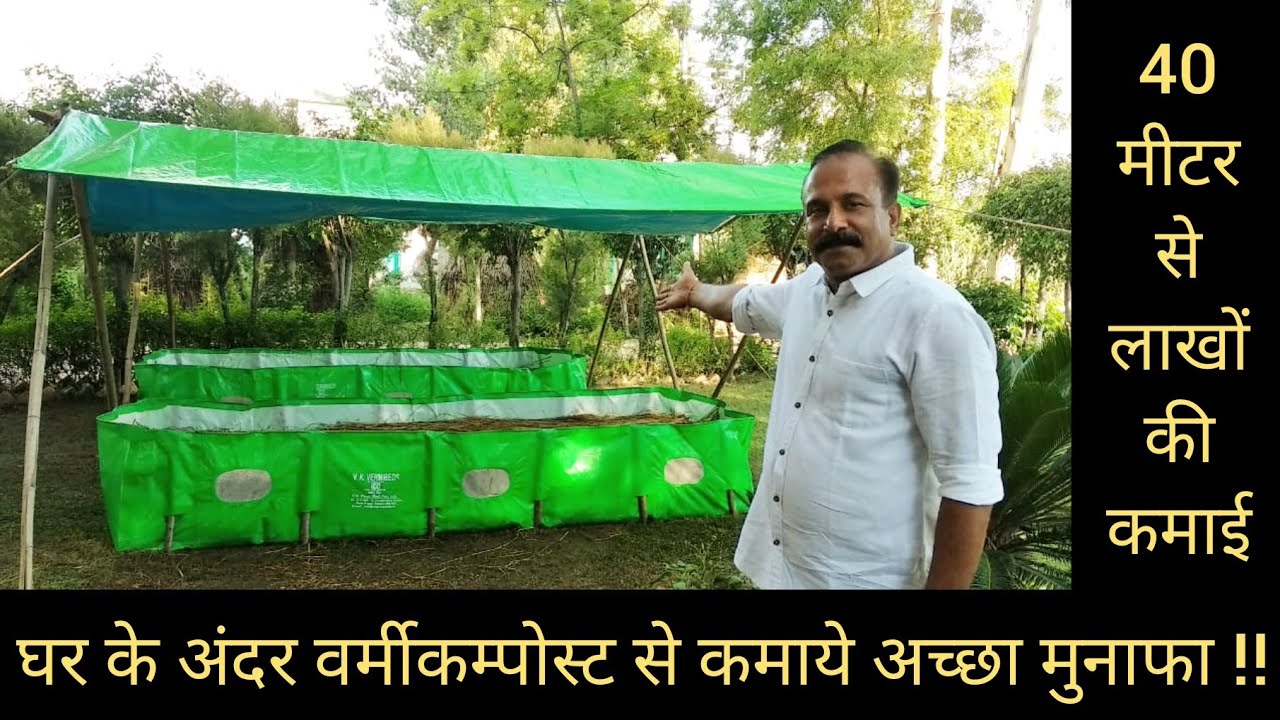
Why Vermicompost is Important for Plant Growth
Plants also use nutrients to grow like humans. Plants require certain nutrients for their growth, reproduction, and various biological activities. If these nutrients are not available, the growth of plants stops, if these nutrients are not available for a certain time, then the plants die.
Anoop Shankar Mishra, agricultural advisor of Khushhali Krishi Kendra of Rae Bareli district, is telling about the elements that give power to plants. He explains, “Plants make food for themselves in the presence of sunlight by taking water and minerals from the soil and getting carbon dioxide from the air. Plants need 17 elements, without which the plant would not be able to survive. Growth, development, and reproduction, etc. are not possible, but some of the main elements are as follows, Carbon, Hydrogen, Oxygen, Nitrogen, Phosphorous, and Potash. Plants take up the first three of these elements from the atmosphere.
Vermicompost Nutrients are classified according to the needs of plants as follows:
The main Vermicompost nutrients are nitrogen, phosphorus and potash.
Secondary nutrients calcium, magnesium and sulphur.
Micronutrients Zinc, Manganese, Boron
Nitrogen-
- Nitrogen makes protein, which is an integral part of living things. It also participates in the formation of foliage green. This is how nitrogen contributes to the growth and development of plants.
- It imparts a dark green color to the plants.
- Vegetative growth is encouraged.
- Increases the amount of protein in cereals and fodder crops.
- It helps in the formation of grains, helps in the growth and development of all living tissues i.e. root, stem, leaves.
- Chlorophyll is an important component of protoplasm proteins and nucleic acids. Improves the quality of leafy vegetables
Symptoms of Nitrogen-deficiency-
- Lack of protein in plants and light-coloured appearance. Lower leaves begin to fall, which is called chlorosis.
- Stopping plant growth, less formation of buds, less flowering.
- Falling of fruit trees.
- Dwarf appearance of plants. Early ripening of the crop.
Potassium
- Strengthens the roots and prevents drying.
- Increases insect and disease resistance in the crop. Protects the plant from falling. Helps in the transmission of starch and sugar.
- Helps in the formation of proteins in plants. Adds shine to the grains. Increases the quality of crops.
- Enhances the taste of potatoes and other vegetables. Improves ripening properties of vegetables.
- Removes the ill effects of nitrogen in the soil. Increases the activity of enzymes. Increases the use of light by plants in cold and cloudy weather, which increases the ability of plants to tolerate cold and other adverse conditions.
Symptoms of potassium deficiency
- Leaves turn brown and mottled and drop prematurely.
- The edges and ends of the leaves appear scorched.
- Due to this deficiency, the corn kernels are small, sharp and the grains fall short at the edges.
- In potatoes, the tubers are small and the development of roots is reduced. In plants, the process of photosynthesis is less and the process of respiration is more.